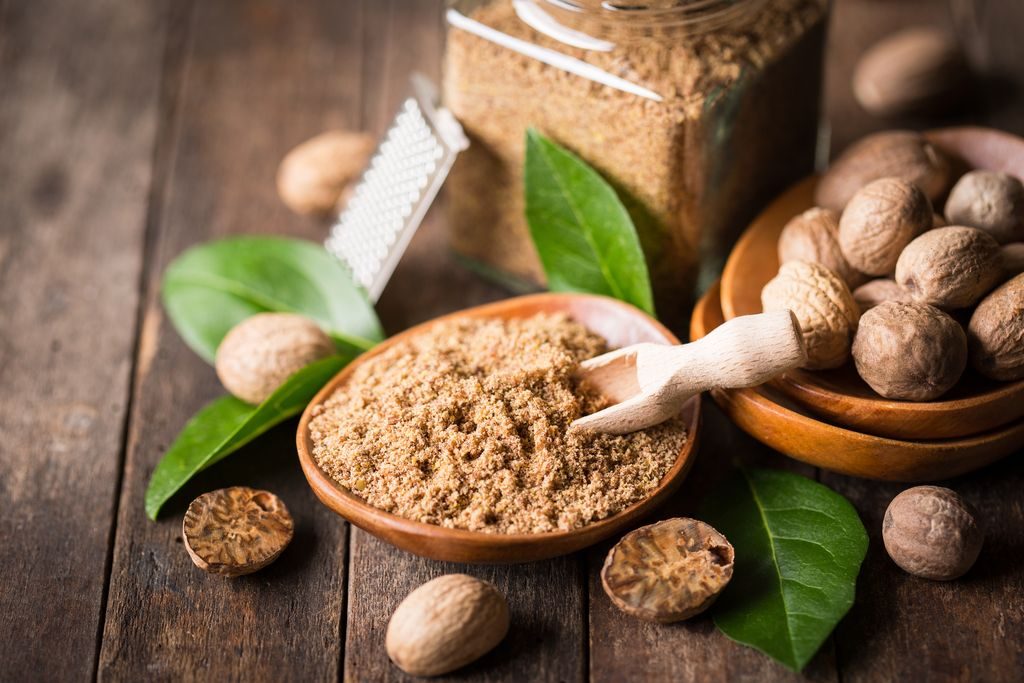Nutmeg
Nutmeg is a spice that you can find in many different kinds of recipes from sweet to savoury.

Contrary to what you may believe nutmeg is not a nut, it is, in fact, a seed! Nutmeg a fantastic smelling and aromatic spice. You can buy it from most shops either whole or powdered.
The nutmeg tree is native to the spice islands of Indonesia. It’s harvested by removing the seed from the fleshy part of the fruit. Covering the seed is a bright red covering, this is used to make mace. The seed is then dried in the sun for 6 to 8 weeks. Once the seeds have been fully dried they are a soft brown colour.
Nutmegs uses
Nutmeg has a warm slightly sweet taste and is used in both sweet and savoury recipes. It marries well with cinnamon and ginger in baking and it is fantastic when grated over some eggnog at Christmas!
Nutmeg tends to lose its taste and smell quickly so a lot of people prefer to buy it whole and grate some into a powder when needed. You can always tell when someone has ground some nutmeg because very quickly the house will be filled with that warm comforting smell.
Nutmegs nutritional facts and health benefits
Its high mineral content and contains many essential oils such as myristicin, elemicin, eugenol and safrole. Not only that but nutmeg also contains amounts of calcium, iron, potassium, manganese. Nutmeg is known for being an anti-inflammatory, encouraging blood circulation.
It is possible to have an allergic reaction to nutmeg. If you have symptoms like wheezing, a tight chest or a rash after consuming nutmeg you should ask your doctor for an allergy test. In some extreme cases, some people can have an anaphylactic reaction but this usually occurs within minutes a few minutes of ingestion.




